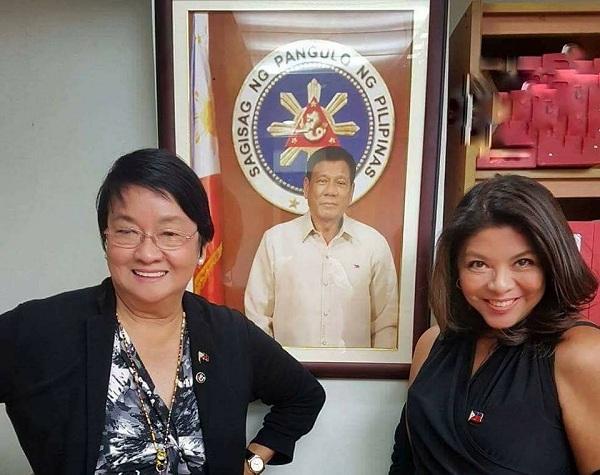ASEAN execs touch on fake news in Bohol meeting

MANILA, Philippines — The ASEAN Senior Officials Meeting Responsible for Information – Working Group on Information, Media, and Training held their fifth meeting Sunday in Panglao, Bohol to tackle actionable points against the proliferation of fake news in the country.
Presidential Communications Operations Office Undersecretary Lorraine Marie Badoy in opening the meeting said that the internet, particularly the phenomenon of fake news, has dire consequences.
“One of our biggest aims in the information sector is to create a cyber ecology that is more in keeping with who we are, our nobility and all these great traits about humans rather than the dark side of humanity,” Badoy said.
"We cannot anymore stop it because the age of information is upon us, [and in] the age of information, lives can be destroyed, governments can be toppled."
Badoy added that as a result of the online environment, the Filipino children became prone to sexual exploitation on the internet.
“The Philippines, our country, is the global epicenter for online sexual exploitation of children, which means that we are number one in the world. Our children are preferred sexual toys of these predators across halfway around the world,” she said.
"This is the kind of world that’s being created and those of us who are here, those of us who can push back should push back."
Moving forward
But a communications associate professor at De La Salle University warned that some instances of digital disinformation are not only state-sponsored but state-initiated.
And as a result, the Philippines today is the "patient zero" of digital disinformation, DLSU professor Jason Cabañes said on Tuesday.
A study conducted by Cabañes and his team disclosed the growth of disinformation operations in the Philippines, particularly those on social media, has grown because of the success of the creative and digital industries in the country.
"The difficult thing there is that [our] current campaign laws [only] focus on the election period. But disinformation now doesn’t just happen during election period, it’s an ongoing thing," he warned.
Cabañes admitted that the idea of regulation should be looked to rather sparingly because of the implications it had on free speech.
"Regulation is a problematic thing because it has dire implications for our freedom of speech. If we [opt for] government regulation, are we really willing to let our government decide for us what should and shouldn’t be online?"
Instead of outright regulation, he said, the problem should be tackled at its source.
And for him, this began with the workers from the digital and the creative industries who were continuously getting pulled in and exploited.
“A lot of these people get pulled into the digital underground precisely because of their precarious economic conditions,” he explained.
“So if you could provide social safety nets, if you could incentivize ethical practice and professionalize the digital industries, perhaps we’d stem disinformation from the source rather than play catch-up.”
- Latest
- Trending






























